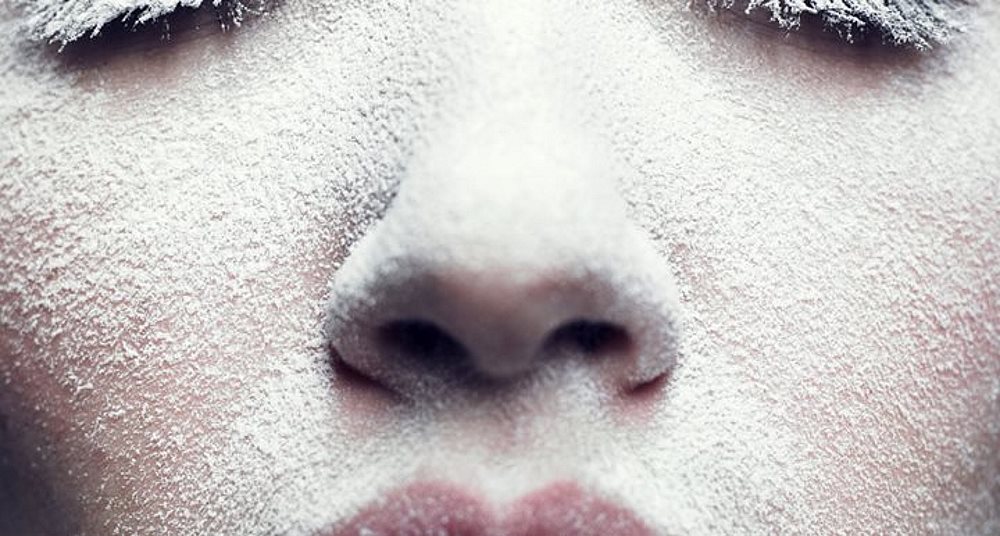Winter is a tough time for your skin. The drop in temperature, combined with low humidity and indoor heating, can strip the skin of moisture and cause dryness and cracking. If left untreated, dry skin can sometimes lead to dermatitis (an inflammation of the skin), eczema (severe dryness of the skin), swelling and infection. However, making a few simple changes to your daily skin care routine in the winter months can help offset this problem.
Humidity
When the relative humidity inside drops below sixty percent, your skin begins to lose moisture, causing you to feel the dryness and itching that irritates so many during the winter months. However, in humid conditions, the skin can replenish itself by soaking up moisture from the air. When the humidity drops, your skin loses the opportunity to moisturize itself. Combine that with low humidity of indoor heating, hot showers and baths and your skin is bound do become dry and irritated.
The top layer of skin the epidermis, along with oil glands produce lipids (fatty substances) that keep your skin from losing moisture and make it soft and supple. However your skin is constantly losing moisture into the air and bathing strips away these lipids allowing even more moisture to evaporate and dry the skin.
Stay Hydrated!
Ensure that you keep the skin hydrated by drinking eight to ten glasses of water daily which maintains proper water levels from the inside out. Consider using a humidifier or vaporizer in your home as soon as it gets cold outside, keeping it running until the days begin to warm in early spring. Keeping the relative humidity in your house at about 50% helps maintain hydration of your skin, along with your eyes, throat, nose, and entire respiratory system.
Cool those jets!!! Bathing in cooler water temperatures is less drying than hot water. Hot water strips away the natural oils that protect the skin. A brief shower is better for the skin than sustained immersion in a hot bathtub. Patients with dry skin should also use milder, non-soap skin cleanser. Look for soaps labeled “Fragrance Free” (which is not that same as “unscented” since those may still contain perfumes) as these are often more gentle to the skin. Also avoid antibacterial soaps, which are harsh and have no proven medical value over standard soaps and cleaners. If the skin is especially dry, limit soap use to the armpits, groin and face during the majority of showers. Avoid products containing alcohol as they also lead to dryness.
The most important thing you can do is moisturize properly. When choosing a moisturizer, look for lotions and creams containing any of the following emollient/occlusive ingredients: petrolatum, mineral oil, silicon oil, lanolin, ceramides, dimethicone, lanolin, beeswax, fatty acids such as stearic, linoleic, linolenic, oleic, and lauric or carnuba. These will help trap moisture within the skin and contribute to skin softness, flexibility and smoothness. Moisturizers are best utilized within three minutes of toweling off after bathing to trap moisture into the skin. Their use on dry skin is less likely to alleviate dry skin.
Additionally humectants hydrate the outer layers of the skin by drawing water from the environment and deeper tissues to rehydrate the outer layers of the skin. They also increase elasticity and are best used when combined with emollients and occlusives. Examples of humectants are: alpha-hydroxy acids such as lactic acid, glycolic acid and tartaric acid as well as urea, glycerin and propylene glycol.
Many skin care lines now offer topical hyaluronic acid gels for additional hydration. Hyaluronic acid (also known as sodium hyaluronate) is a naturally occurring substance in the skin and joints and acts as a lubricant by restoring moisture. As a physiologic moisturizer, hyaluronic acid gels treat dry skin by replacing water, an essential component to healthy skin. Hyaluronic acid is pH neutral and can be used on any skin type. Use this to hydrate deep within the skin and follow it with a good moisturizer to trap the moisture in.
Dry skin can also be caused by a number of medical conditions such as a change in hormone levels, diabetes, low thyroid levels and malnutrition and medications such as retinoids, antihistamines, and diuretics.
If your dry skin problem is making you miserable, it’s time to talk to a skincare professional or a doctor. He or she can help you identify the causes and get you the treatment you need.

 (512) 520-9900
(512) 520-9900

